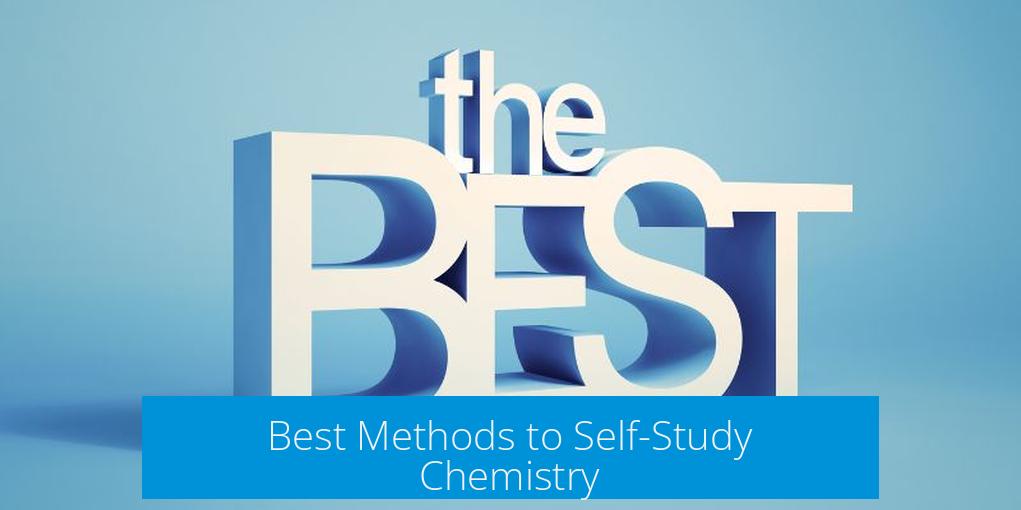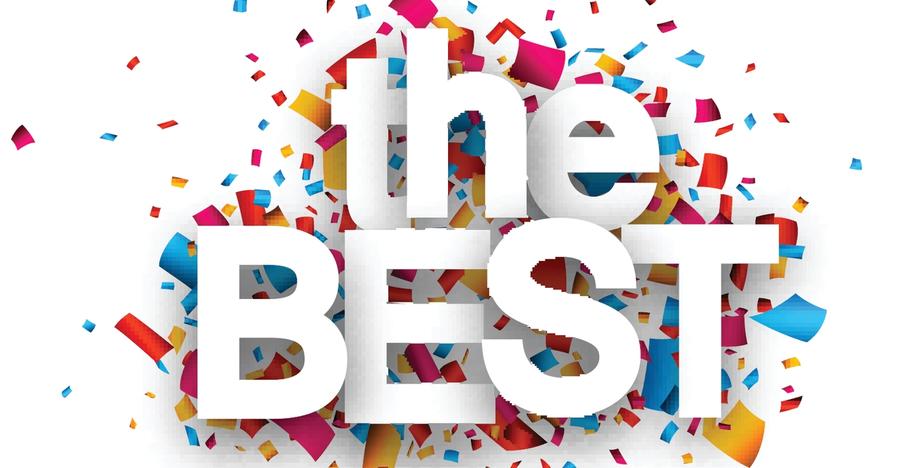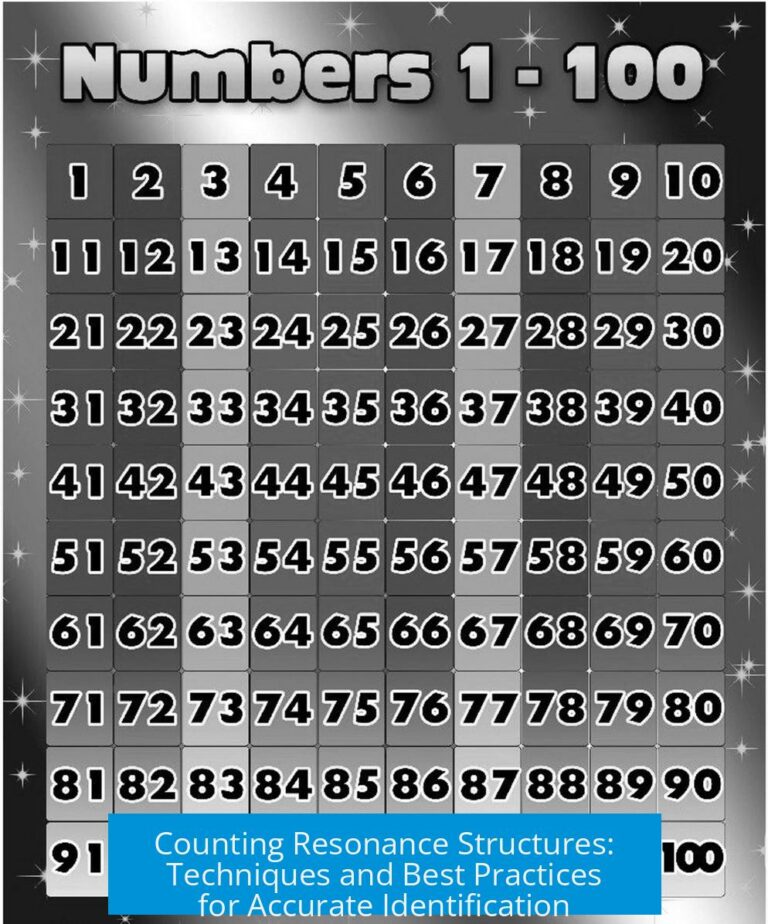Best Methods to Self-Study Chemistry

The most effective way to self-study chemistry involves planning your learning, using quality resources, and focusing on deep understanding through detailed research. These steps help structure your study, maintain progress, and build a solid foundation in chemistry concepts.
Planning and Self-Assessment
Begin by selecting specific chemistry topics to study. Develop a clear timeline with target dates for learning each topic and for self-assessment. Setting standards helps evaluate whether you truly understand the material.
- Create goals for each study session and schedule progress checks.
- If understanding is insufficient, review the topic before reassessing.
- Strict self-discipline prevents skimming and promotes thorough comprehension.
Use of Quality Resources
Access to reliable learning materials is vital. Textbooks provide comprehensive coverage and structure while online platforms offer varied explanations and visuals.
- Recommended sites include Khan Academy, Chemguide, and university course pages.
- Video channels like TMPChem give clear demonstrations of chemistry concepts.
- Advanced textbooks, even if slightly challenging, help identify the direction of study.
Deep Understanding Through Detailed Research

Focus on understanding each unfamiliar term or process by researching it thoroughly. This detailed approach ensures a strong knowledge base.
- Examine concepts at the molecular or atomic level when possible.
- Be patient; building foundational knowledge takes time but is critical.
- Progress steadily by linking new information to what you already know.
Summary of Key Points
- Plan your study topics and use timelines for structured learning and self-assessment.
- Use trustworthy textbooks and online resources for a balanced understanding.
- Research every unclear term carefully to build a solid chemistry foundation.
Best Methods to Self Study Chemistry: A Practical and Engaging Approach
Self-studying chemistry effectively demands careful planning, the right resources, and a deep understanding of concepts. Because chemistry, unlike some subjects, requires gradual mastery of numerous interconnected ideas—each building upon the last—jumping in without a strategy is like mixing chemicals blindfolded: you’re bound for trouble. So, what are the best ways to self-study chemistry? Let’s dive in with a clear, guided approach that keeps you motivated and smart about every step.
Think of self-studying chemistry as both an adventure and a process. Starting without a roadmap is tempting, but setting goals first gives you power over your learning journey. Let’s break down the methods that guarantee success.
Step 1: Planning and Self-Assessment – Your Personal Chemistry Roadmap

Before grabbing any textbook or video, decide precisely which topics you want to tackle. Chemistry is vast—from atomic theory to organic synthesis—so zero in on manageable chunks. Otherwise, you might find yourself overwhelmed.
Create a timeline. Map out when you’ll learn each chapter or concept, and when you’ll test your understanding. Without deadlines, learning floats into “later,” a slippery slope to procrastination.
Here’s a practical tip: be strict with yourself. When you hit a self-assessment date, ask if you truly mastered the concept or just skimmed it. I’ve seen many learners fall into the trap of “fake understanding” by rushing.
If your self-test reveals gaps, don’t panic. Review that topic, then schedule another assessment date. Rinse and repeat. This cycle respects the reality that chemistry requires deep comprehension, not just surface-level memorization.
Step 2: Use Quality Resources – Choose Materials That Guide and Inspire
Good materials serve as your lab partners in this solo study. Pick resources carefully:
- Textbooks: A high-quality chemistry textbook offers structure and depth. An old college-level book, though challenging at first, shows where your learning is heading and what to expect.
- Online platforms: Websites like Khan Academy (Khan Academy Chemistry) provide free lessons that are easy to follow and interactive.
- Video tutorials: Channels like TMPChem (TMPChem on YouTube) combine entertainment and expertise, making tough topics easier to digest.
- Communities: Reddit’s chemistry forum (r/chemistry) is a treasure trove of advice, discussions, and guidance from learners worldwide.
Using a mix of these sources can keep you engaged and cover various angles on tricky subjects.
Step 3: Deep Understanding Through Detailed Research – The Secret Sauce
When you stumble on a word or process that looks like a foreign language, stop. Research that term individually. Look for definitions, watch videos, read different explanations, or even consult simpler descriptions.
This may sound tedious, but breaking things down to the molecular level—literally!—is essential. Chemistry isn’t just about formulas; it’s about understanding how atoms behave, why reactions happen, and what underlying principles govern it all.
Be patient. Building this foundation takes time and effort, and the temptation to rush is real. You might spend hours on one concept, but that detailed understanding soon pays off. You’ll solve problems faster, predict reactions better, and enjoy the subject more.
Imagine chemistry as building a Lego set. If you skip the small bricks, the final model wobbles. Grab every piece, study it, and fit it well.
Putting It All Together with a Personal Twist

One learner shared how scheduling self-assessments transformed their study habits. Instead of passively reading, these “mini exams” kept them honest. When they failed a concept test, they went back to videos and textbooks, sometimes asking on forums for help. This discipline created a feedback loop that accelerated their progress.
Another found that combining textbooks with interactive platforms like Coursera and Udemy gave a balanced view—structured theory plus hands-on problem solving. Watching chemistry unfold visually on YouTube after reading dense chapters helped cement ideas.
And don’t forget to savor the journey! Chemistry can be thrilling, not just a chore. Experiment mentally with concepts. Think about how learning to balance equations is like balancing life’s challenges. Yes, learning is about success—and lessons from failures.
Some Final Recommendations for Aspiring Chemistry Self-Studiers
- Start small. Tackle atomic structure before diving into organic mechanisms.
- Use multiple resources. Don’t rely on one book or video. Triangulate knowledge to catch mistakes.
- Take notes by hand. It forces engagement and aids memory.
- Keep a glossary. Write down definitions for tricky terms you research.
- Test yourself regularly. Use quizzes on Khan Academy or create your own questions.
- Join a study group online or find a study buddy to keep motivation high.
Above all, commit to patience. Chemistry is a marathon, not a sprint. With a plan, quality materials, and dedication to understanding the tiny details, you can master this fascinating science all on your own.
So, ready to mix your own study cocktail? What part of chemistry excites you most? Drop a comment and share your favorite topic or resource—because learning is better together.
What is the best way to organize my chemistry self-study?
Create a clear plan with specific topics and deadlines. Include times to test your understanding. If you don’t meet a standard, review and reschedule your study. Being strict with yourself prevents shallow learning.
Which resources are recommended for self-studying chemistry?
- Use trusted websites like Khan Academy, Chemguide, and university materials.
- Watch educational videos such as TMPChem on YouTube.
- Consider college textbooks to understand advanced topics and future directions.
How important is it to understand every term or process?
It is vital. Research any concept or term you don’t know in detail. This builds a strong foundation that supports deeper learning. It takes time but is essential for mastering chemistry.
Can advanced materials help beginners in chemistry?
Yes. Exposure to upper-level materials can guide your learning path. They show what you eventually need to grasp. Start by breaking down difficult concepts one by one.
How do I assess my progress effectively?
Set clear standards for understanding before each self-assessment. Test yourself on those points. If your knowledge is lacking, review the topic and choose a new date to reassess. Repeat until you improve.





Leave a Comment